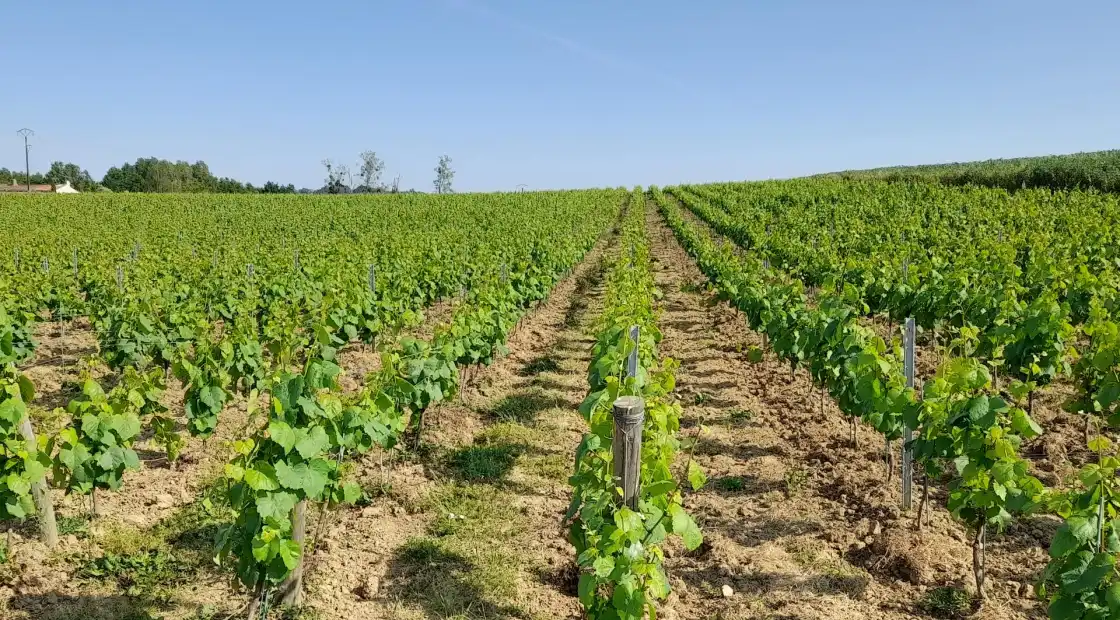DEPHY, 10 years of results! Global impacts for a winery (case study)

10 years of analysis of the impact of winegrowing practices within the DEPHY network
On the occasion of SIVAL 2024, several themes were addressed to analyze the results of a decade of the DEPHY network, dedicated to agricultural and viticultural practices. The study focuses on a sample of 415 farms, spread across the various French vineyards. From 2011 to 2021, the data collected covered various technical-economic, environmental and social aspects. Among the key points, an overall reduction in the treatment frequency index (IFT) of 14% was observed, with a notable 45% increase in the use of biocontrol solutions. This dynamic reflects our efforts to promote a sustainable ecological and economic transition in the winegrowing sector.
The use of alternatives to phytosanitary products has been a key lever. Solutions involving mating disruption and practices such as mechanical weeding and grass cover have enabled us to move away from the traditional use of herbicides. Some innovative practices, such as eco-pasturing and vitipastoralism, are beginning to emerge in vineyards. These initiatives have led to a 24% reduction in the use of non-biocontrol fungicides in ten years. They have also led to a major reduction in the use of herbicides, with 35% of farms no longer using them. Organic farms and those in the process of converting systematically have lower TFIs than conventional farms, testifying to the benefits of such agricultural transitions.
Local studies and technological specificities: focus on the Robert et Marcel cooperative winery
One notable example presented at SIVAL concerns a group of winegrowers from the Robert et Marcel cooperative winery, located in Anjou. Since 2014, this group has been using a series of levers to reduce the impact of phytosanitary treatments and improve their agricultural performance. Among the measures implemented are optidose, improved spray quality and the planting of resistant grape varieties. Soil management and the extension of grassed areas are among the notable improvements that have contributed to the overall reduction in IFT for herbicides and fungicides, by 50% and 30-40% respectively.
Between 2014 and 2022, the group's winegrowers showed increasing ratios between biocontrol and non-biocontrol IFTs, illustrating a complete adoption of biological solutions to the detriment of conventional techniques. The study reveals that chemical products such as insecticides and herbicides are now being marginalized in favor of substances recognized for their environmental and economic effectiveness, notably copper and sulfur.
In terms of economic impact, overall costs have not changed significantly from the initial situation. This stability is partly attributable to the savings generated by the lower consumption of plant protection products. Although there has been an increase in working time and equipment use, this has been offset by a reduction in certain costs and by local strategies for optimizing resources.
Social challenges and prospects for the DEPHY network
Over and above the technical results, an in-depth analysis was carried out on the socio-economic and environmental dimensions. The positive impacts extend to the reduction of greenhouse gas emissions, thanks to a reduction in the use of inputs and better optimization of practices. Life cycle analyses, using Diag Décarbon'Action and Viti Simuleco among others, highlight the economic and ecological benefits of the transition. These tools, combined with individual interviews with farmers, revealed that changes in practices are rooted in local adaptation and dynamics specific to each farm.
However, a number of challenges remain. The increase in fuel consumption, linked to the intensification of mechanical work, and the disparities between current recovery methods remain significant obstacles. The development of techniques better adapted to each geographical and climatic context could provide solutions. Spray quality has also been identified as a key factor in maximizing the effectiveness of treatments and reducing their environmental impact. In this respect, DEPHY network advisors play an active role in supporting farmers, helping them to improve their individual and collective skills.
The DEPHY network is embarking on a strategic shift towards more far-reaching transformations. These include increased conversion to organic farming, a gradual reduction in the use of specific active ingredients, and the integration of solutions to better meet climate challenges. The collective approach and synergies generated by this network continue to lay the foundations for sustainable, innovative viticulture.